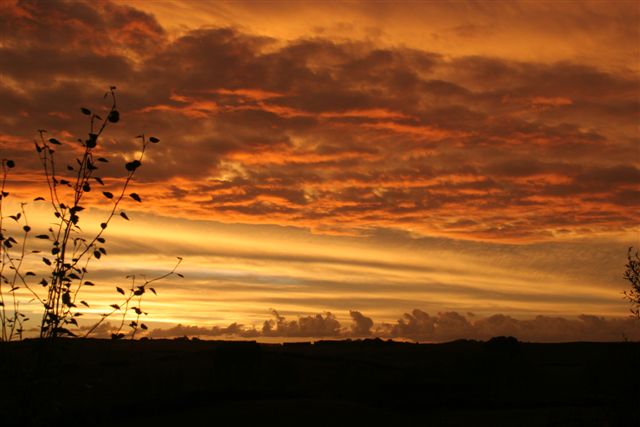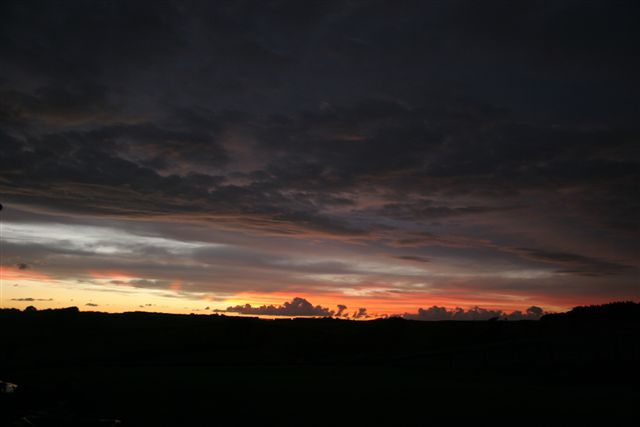2008 — 1 April: Tuesday — rabbits!
You can tell when Amazon are getting desperate. They regularly email me with new recommendations based on previous purchases. But why do they think the fact that I bought the new Harry Potter and Pride & Prejudice DVDs would ever incline me to order Ridley Scott's American Gangster?
As bizarre in its way as the BBC4 programme last night about Marty Feldman or the experience of calling the CityLink main UK call centre, and being endlessly assured that my call would be answered "shortly", "in a moment", "as soon as one of our operatives is available" — with these assurances constantly being undermined by the suggestions that I might prefer to use email (to an address that wasn't clearly enunciated) or fax. When I did eventually get through to a person, they didn't know exactly where the Fareham depot was because they worked in the main UK call centre (and the automated voicemail I'd previously done battle with had given me that number as the "local" depot). What a long way this organisation has progressed since 1969 and its rail-based Red Star days.
I'm a bit grumpy because I've just realised I now need to buy a USB keyboard1 for my PCs to attach to my nice new KVM switch. This is all a bit like the old lady who swallowed a fly... But, on the marginal forward progress front, I've at least proved that the Panasonic PVR and the hi-def satellite box can both feed the 24" 1,920 x 1,200 screen downstairs via its hdcp-compliant DVI input using my little hdmi-to-DVI cable. Can't comment on any upscaling, however, as I can only set "Automatic" on the Panasonic's output connection; all the other choices are greyed out. And when I set the satellite output to 1080i, I get a modal dialogue box in the middle of the screen telling me that it's not at optimal resolution.
Time (a mere 00:33) for bed.
Such stuff as dreams are made on... dept.
As Prospero said, "Our revels now are ended" (does he mean I'm awake again?). It's 09:19 here, and rather later than that in New Zealandland, home of Big Bro. I haven't even had the cuppa that will finish the waking up process!
I mentioned a while ago the effect of the HG Wells book "The war of the worlds" on my perception of the world, as morning sunlight filtered through the red curtains in my bedroom momentarily convinced me that the Martians were here. Big Bro snapped a series of "twilight zone" shots today (as he leaves 1st April behind downunder). He tells me, "The Chinese reckon that the best thing about NZ are the clouds. Here is tonight's clearing skyline, SW round to NE":


Wow!
Next up?
As soon as the "men" have (black) binned and gone, and their lorry poses no navigation threats to a novice driver, I shall hit the local keyboard shop, via the "return the two under-sized strip lights" emporium, and then it will be time to think about that retirement lunch I'm invited to attend. Shades of J Alfred Prufrock, "Do I dare to (not) wear a tie?"
Goodness me, Barber's Quartet in B minor for strings is a horribly mournful piece of music, isn't it? Particularly the Adagio. Time to twitch that channel knob, David. That's (not) better, but much more cheerful. And the sun's just come out, too.
Meet "Antea"
She's new to me, I'm ashamed to say, but not to lots of better-informed people:

A nice item about her. From an adjacent article, I read a paragraph that reminds me of that scary 1956 book, "The death of grass"2 (aka "No blade of grass" which was, if I remember, the 1970 film3 title) by John Christopher:
When I was a child in a conservative suburban household, and we pondered emergencies — such as the possible election of a Labour government — the default solution was: we'll go to Canada. My new survivalist friends recommend Idaho, for its good hunting and liberal gun laws. I fear we won't be able to reach either, nor even the Lake District, Dartmoor or some other high-elevation, small-scale British equivalent, at least not in our little urban micro-car (good for parking in the West End, less good for fording rivers).
It's a GOOD life... dept.
I've recently returned, in brilliant sunshine, and under an essentially cloudless blue sky, from the IBM retirement lunch for John S. Good meal, even better company, and yet another rite de passage observed. Obviously, the awful process of becoming a widower hasn't helped me keep my eye on the ball, as it were, of many of my usual interests and activities in recent months. I don't blame Christa for this — her cancer was one of those horrible life events that just had to be contended with, one day at a time, for as long as it took.
Perhaps the lady from the hospice who told me we don't think enough about death was more nearly correct than I gave her credit for at the time. I conclude (though it's not what you could call a staggeringly insightful conclusion) that my life after Christa is now only as bleak as I actually choose to let it be; in the first few weeks I admit that was pretty damned bleak, though learning to drive and, on some amateurish level, fend better for myself domestically, helped enormously. Cathy warned me not to be too introspective. Christa herself (I know) was also worried about my health and happiness in the period after her death. My son has seen my pain and grief at first hand, and feels much the same as I do. But there is nothing we can do to change what happened, and much we can do to carry on.
The title here comes from Jerome Bixby's 1953 short story, of course, and very scary it was too. But I've just ordered a DVD of "Man from Earth"4 — a low-budget film based on the story Bixby completed on his deathbed in 1998. It has a very interesting premise: immortality. I've always wondered what would stop an immortal person from going mad with — ultimately — boredom. Or would such a person — a god, I suppose, in some terms — gradually approach a form of omnipotence?
The creator of the character "Dilbert", Scott Adams, has (in his short book God's debris) tackled omnipotence, concluding "I can conceive of only one challenge for an omnipotent being — the challenge of destroying himself." I'm not sure my brain is wired appropriately to grapple with either of these powerful themes, but they continue to intrigue and interest me. Here's hoping for some worthwhile entertainment in due course, therefore.
Nicely put
Say what you will about the New Yorker it contains some superb writing. Here's Michael Kinsley in great form:
A longer life for Robert McNamara doesn't mean a shorter life for you or me or the average citizen of Vietnam. He's done that damage, and at his age he won't be doing more. In fact, he seems to have been spending the gift of a long life trying to make amends — mainly, as he described his recent agenda to me, by flying around the world to conferences where the world's suffering is deplored...
Christa and I both found the Errol Morris 2003 documentary "The fog of war" (11 lessons from the life of Robert S McNamara) completely fascinating. I also learned the meaning of the word "tontine" in this Kinsley piece. It doesn't mean "time for tea", but that's what it now is... (18:42)